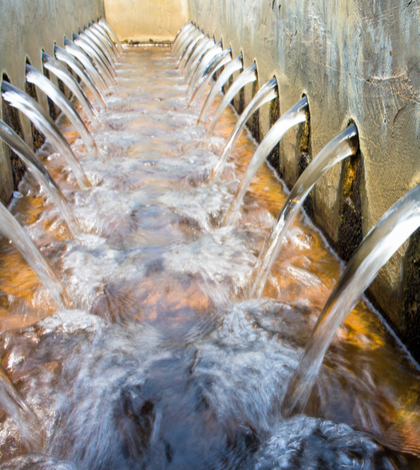Following two periods for public comment and numerous public meetings to receive input on proposed updates to the newly amended Policy for Water Quality Control for Recycled Water, the State Water Resources Control Board voted last week to update its policy for recycled water. In crafting the updated policy, an expert advisory panel was assembled to develop recommendations for constituents of emerging concern (CECs). CECs include a broad range of chemicals that are typically not well-monitored and are not regulated from a water quality perspective. CECs contain chemicals in hormones; personal care products; pharmaceuticals; industrial, agricultural and household chemicals as well as other sources.
Recycled water is regarded as treated water that is deemed suitable for a beneficial use or a controlled use such as groundwater replenishment or irrigation, that would otherwise not occur. The amended policy sets statewide goals for recycled water use and makes good on the State Water Board’s pledge to encourage the development of underutilized water resources to address the effects of the state’s declining water availability due to climate change, drought and water supply uncertainty.
The advisory panel opted for a conservative approach in evaluating the potential for CECs to be present in recycled water but recommended monitoring for CECs in potable recycled water. The panel emphasized in their report that they “cannot stress strongly enough that the outcome of the 2018 application of the risk-based framework clearly points to the safety of potable and non-potable reuse practices in California.”
“This policy sets out how to issue a permit for a recycled water project while protecting public health and the environment,” said Laura McLellan, a senior environmental scientist in the Division of Water Quality. “It provides confidence in the safety of recycled water by including the panel’s recommendations for monitoring and making sure permits are issued consistently statewide.”
California’s first Recycled Water Policy was issued in 2009. Its first amendment in 2013 included monitoring requirements for CECs in recycled water used to recharge groundwater. In the past five years, there have been significant developments in the research and regulation of recycled water, including the process of reservoir augmentation or that of placing recycled water in a reservoir used as a source of drinking water.
The newly amended policy includes statewide goals for increasing recycled water by encouraging its use in areas where wastewater is currently discharged to saline water bodies and in areas where groundwater supplies are threatened. However, the policy does not address direct potable reuse of recycled water.
The State Water Board’s Division of Drinking Water is currently working with scientific experts on establishing regulations that would allow recycled water to be used for raw water augmentation. This includes research on placing recycled water into a system of pipelines or aqueducts that deliver water to a drinking water treatment plant. The deadline for raw water augmentation is Dec. 31, 2023.
 California Water News Daily Your Source For Water News in California
California Water News Daily Your Source For Water News in California


